
The goldendoodle is a crossbreed between a golden retriever and a poodle originally developed in the late 1960s to serve as guide dogs for those allergic to dogs. Goldendoodles vary in size because of the poodle's size variations. The breed typically has curly, hypoallergenic hair and hardly sheds thanks to its non-shedding poodle ancestors. Goldendoodles are highly intelligent, athletic, and lovable dogs that are great with kids and other pets.
Learn more about the beloved goldendoodle to decide if it's the right dog for you and your family.
The goldendoodle is known for their affectionate personality and willingness to please, making this a popular choice for families. Due to their gentle temperament and high trainability, they have been used as pets, agility dogs, guide dogs, therapy dogs, diabetic dogs, and search and rescue dogs.
Goldendoodles were first bred in 1969 to be guide dogs, but the breed gained popularity among breeders during the 1990s. This designer mix was bred to combine the poodle's non-shedding coat with the golden retriever's desirable temperament.
The idea for the crossbreed was inspired by the successful breeding of the Labradoodle, a poodle and Labrador retriever hybrid. As one of the most popular domestic dog breeds in the United States, the golden retriever was an obvious choice for crossbreeding with the delightfully hypoallergenic poodle.
The first three dogs to earn the American Kennel Club Obedience Champion title after its introduction in 1977 were golden retrievers, which proves their loyalty and ease of trainability poodles were originally bred as retrievers and water dogs, and both are among the smartest dog breeds. These genes pass on to the goldendoodle, so owners can expect an athletic, intelligent, and obedient companion.
Though they're not high-maintenance dogs, goldendoodles require adequate exercise, grooming, and training. They make great house pets but enjoy plenty of time to play and explore outdoors. A fenced yard is ideal for goldendoodles to romp around, but they shouldn’t be kept there all day. This social breed thrives with their family and friends inside.
With average to above-average energy levels, goldendoodles require daily exercise and love to go for walks, runs, hikes, and swims. Their playful nature and retriever genes make them great fetch partners, too. Owners should aim for at least 30 minutes of exercise each day including walking, running, swimming, and tackling agility courses.
The goldendoodle's coat varies, but is often somewhere between the two parent breeds when it comes to grooming. Though goldendoodles don’t shed excessively, they still need to be brushed regularly to remove dead hair and prevent matting. To keep their skin and coat healthy, they need a moisturizing bath every few months. Depending on the dog, a goldendoodle may grow long hair over the eyes or between the toes, so appropriate trimming is required.
Goldendoodles are obedient, athletic, and smart so they take well to training and are eager to please. Agility comes to them naturally and courses are a great place for goldendoodles to burn energy and create a strong bond between owner and companion. They respond best to positive, reward-based training and will gladly show off their tricks for a tasty treat.
Goldendoodles tend to have excellent health if bred responsibly. They may inherit health problems associated with poodles and golden retrievers, but crossbreeding may reduce the chances of some health problems due to their genetic diversity. In your puppy search, it’s important to find a reputable breeder who is committed to breeding healthy dogs.
Because goldendoodles are active, they need a high-quality diet to keep them happy, strong, and energetic. Look for dog foods high in protein and healthy fats with meat as the first ingredient. They should be fed measured meals twice a day rather than free-feeding, which can cause weight gain.
Check with your local animal shelter or rescue group to see if there's a goldendoodle available for your home. The IDOG Rescue, Inc., group is dedicated to finding new homes for all types of doodles, including Goldendoodles, that need a loving family. Big Fluffy Dog Rescue also includes goldendoodles in the type of dogs that it rescues.
If you're interested in buying a goldendoodle puppy, find a reputable and responsible breeder and watch for signs of a bad or backyard breeder. The Goldendoodle Association of North America provides a list of breeders on its website.
The goldendoodle is an intelligent, loyal, and affectionate dog that thrives in active homes, especially those with kids. They're fairly easy to train and have relatively low-maintenance care.
Like goldendoodles? You might also enjoy these breeds:
Learn even more about our favorite furry friends by checking out additional dog breed profiles.
No. Goldendoodles are popular dogs, but they are not rare. The only potentially rare goldendoodles are ones with all black or merle coats, thanks to the intricacies of genetics.
Goldendoodle coats come in a variety of colors and markings. Merle refers to a variegated pattern on a goldendoodle's coat. (Note that the merle gene may cause blindness and deafness.) Other names for patterns include parti (half white with patches), phantom (distinct markings on chest and other areas), brindle (stripes), and abstract (solid color with white markings).
The word "furnishings" seems like an odd choice of a word to describe facial hair features for dogs, but that's just what it means. The characteristic furnishings typically found on goldendoodles include longer than usual eyebrows, mustaches, and beards that make the dogs look so adorably scruffy.
If you buy a goldendoodle from a breeder, be prepared to spend on average between $2,000 to $3,000 or even more for a mini or a merle goldendoodle. This dog is expensive because it takes breeders a lot of genetic engineering to produce these beautiful dogs.

Exploring the Different Types of Pet-Friendly Beaches
Are you looking for pet-friendly beaches? Learn about the different types of pet-friendly beaches, their locations, and tips for visiting them with your pet.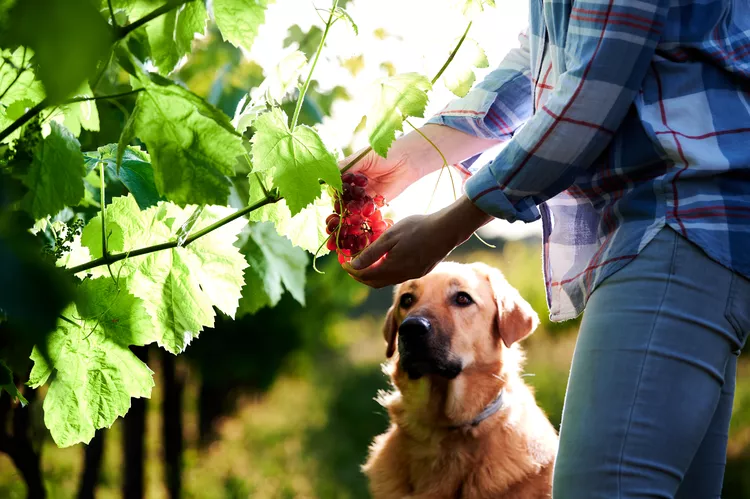
Exploring Pet-Friendly Wineries: Types, Locations, and More
Discover the different types of pet-friendly wineries, where to find them, and what to expect when you visit. Learn more with The Spruce Pets.
Why Is My Dog’s Eye Swollen?
If your dog's eye is swollen, she may need veterinary attention. The inflammation could be caused by allergies, an injury, or even a tumor.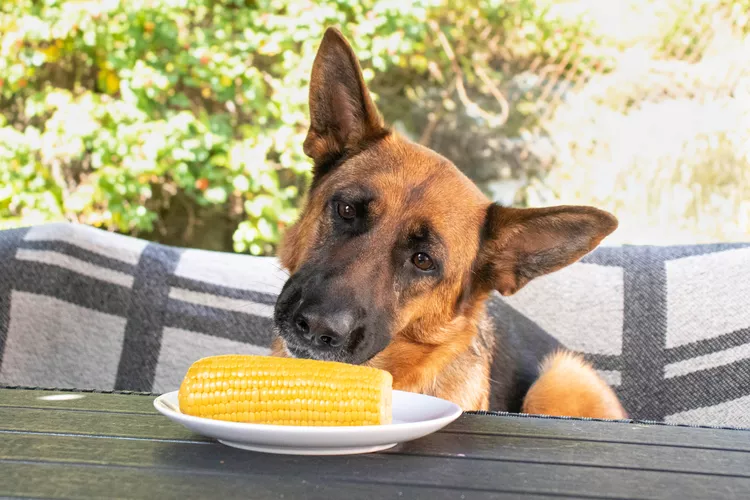
Can Dogs Eat Corn on the Cob?
Dogs love chewing on corn cobs, but this can cause serious harm. Learn about the dangers of corn cobs and find out what to do if your dog eats one.
Can Dogs Eat Papaya? What to Know About Sharing This Tropical Fruit With Your Pup
Papaya is safe for dogs in moderation, and it can even provide some nutritional value for them. However, too much can cause digestive upset, and it's not suitable to share with dogs with certain health conditions.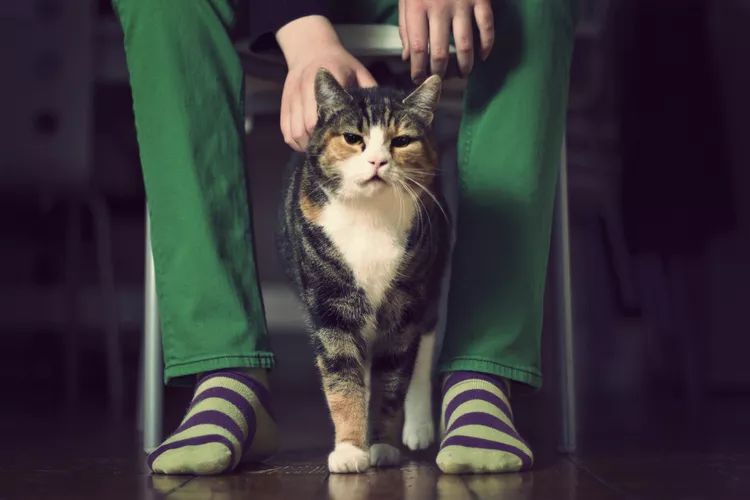
65 Irish Cat Names
Irish cat names can pay homage to historical places, local cuisine, famous Irish actors and musicians, or other wonderful aspects of the Emerald Isle.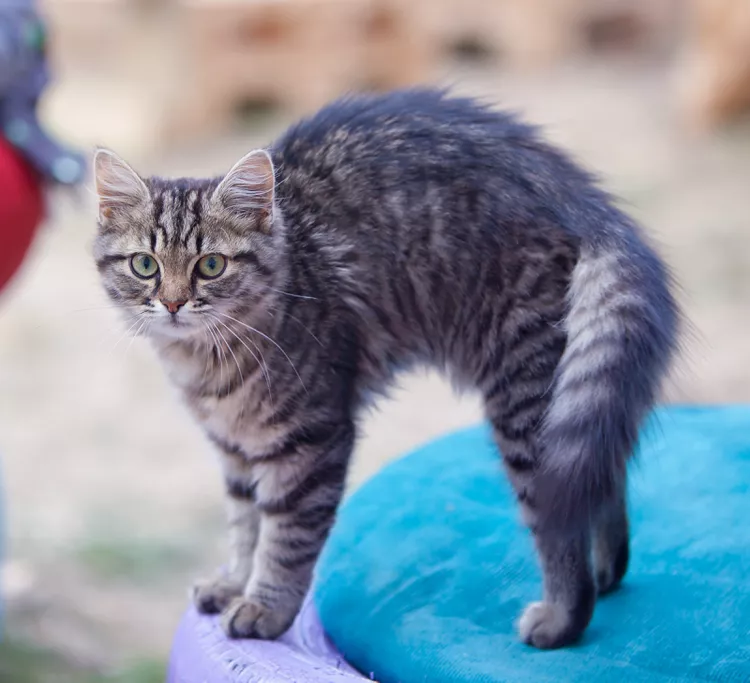
Feline Hyperesthesia Syndrome (FHS) in Cats
Rippling skin is more than dermal sensitivity in cats. It can be a sign of Feline Hyperesthesia Syndrome. Learn the causes, treatment, and prevention.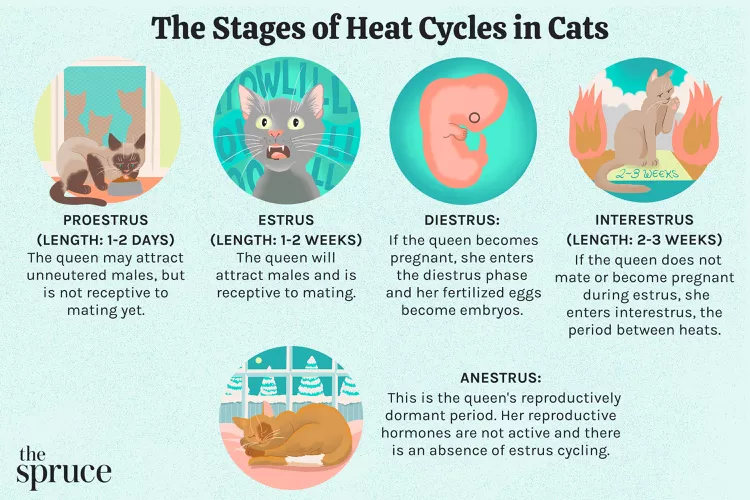
How Long Are Cats in Heat?
How long are cats in heat? Learn about the heat cycles of cats, also called estrus, as well as the reasons you should spay your cat.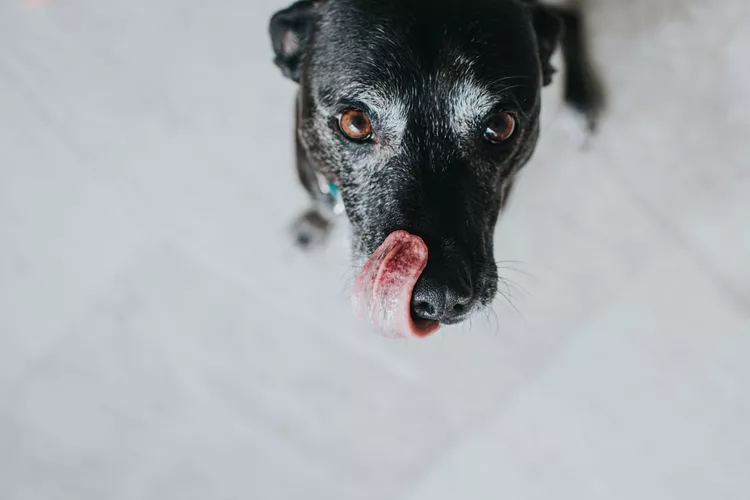
Can Dogs Eat Raw Chicken Feet?
What are the potential health benefits of chicken feet for dogs? What are the risks?
Is Eucalyptus Safe for Cats?
Many products containing eucalyptus are not safe for cats, and it is important to be aware of the risks to your cat.
What You Need to Know About Homemade Cat Food
If you want to cook for your cat, make sure to read about the risks associated with homemade diets for cats
Can Cats Eat Peanut Butter?
Peanut butter is not toxic to cats, but it might not be the best choice of treat for them.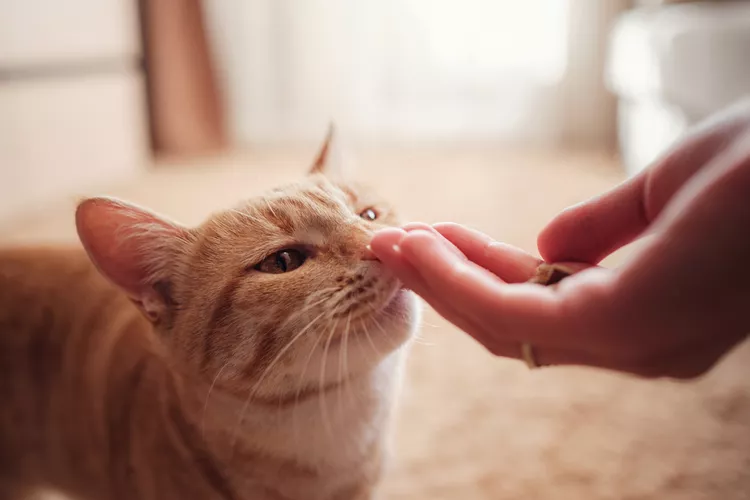
Can Cats Eat Cheese?
Can cats eat cheese? Is it healthy for them? How much can they eat and what should you do if you fear your cat has eaten too much cheese?
8 Flat-Faced Cats with the Cutest Smooshed Faces
These flat-faced cat breeds have a distinct and adorable appearance. Learn about their origins and traits, and the potential health risks tied to their unique facial structures.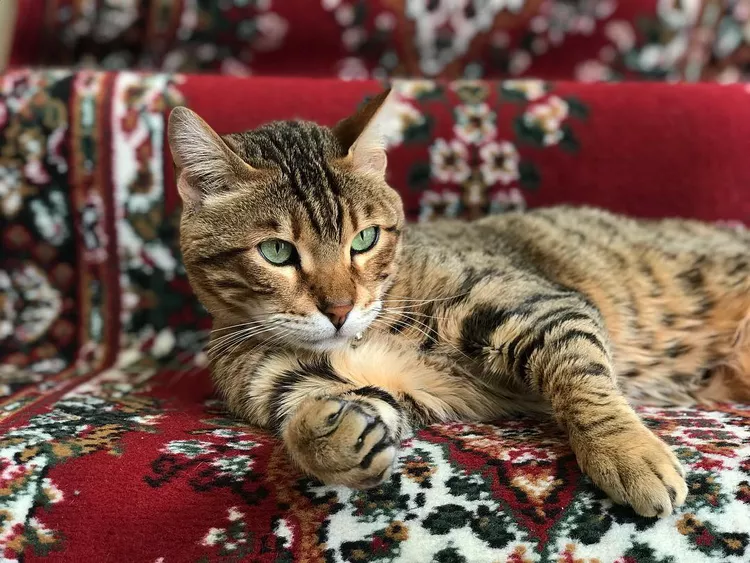
Pictures and Facts About Bengal Cats and Kittens
Bengal cats are a cross between wild cats and domestic cats. Learn more about what they look like and pictures of this beautiful spotted breed.
Top 10 Big House Cats
Larger cat breeds, like Maine coons and savannahs, deserve just as much love as their petite counterparts. These big house cats tip the scales.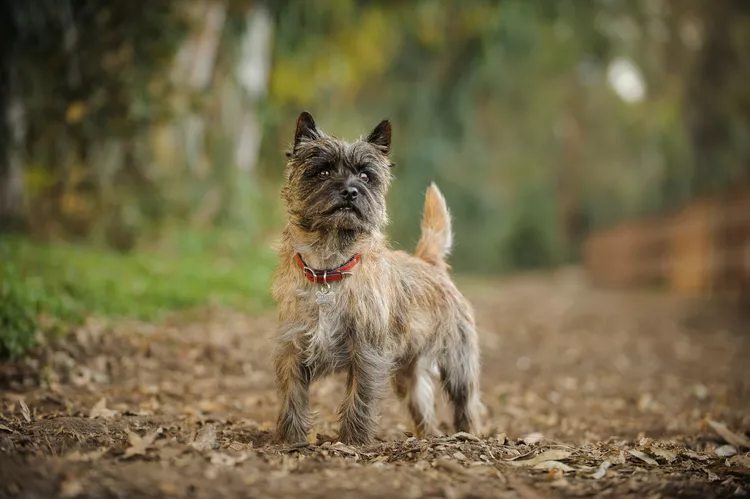
Cairn Terrier: Dog Breed Characteristics & Care
The cairn terrier is a spunky, affectionate, and intelligent dog from Scotland. The breed became famous when one played Toto in The Wizard of Oz. Learn about the temperament, history, health, and care needs of the cairn terrier dog breed.
Reasons Why Dogs Grind Their Teeth
Some dogs grind their teeth. Learn why dogs grind their teeth and if it can be harmful. Find out what to do about teeth grinding in dogs.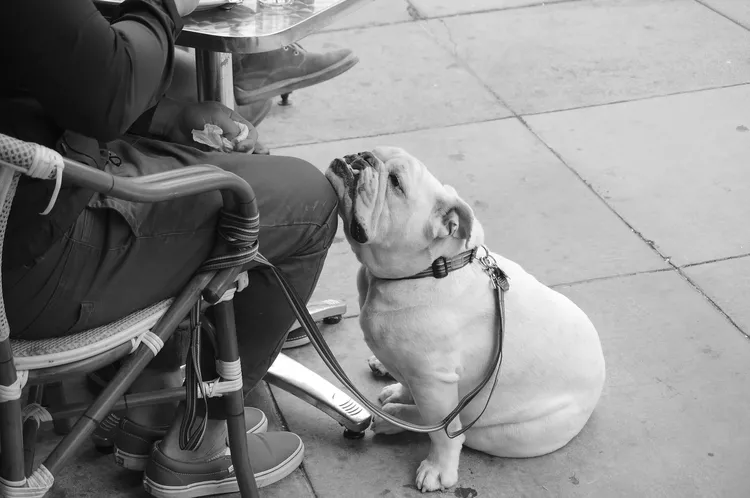
This Is Why Some Dogs Lean on People
Certain dogs really love leaning on their humans. What does this mean? Find out why dogs lean on people and if this is ever a problem.
Can Dogs Get Depression? How to Help Your Sad Dog
Can dogs get depression? Learn about the signs of depression in dogs and find out how to help your sad dog.